Тема урока: Виды преступлений 
Дата 10.11.2017
Класс 11
Цель урока: Повышение мотивации к изучению английского языка, краткое ознакомление с уголовным кодексом, воспитание нравственной позиции учащихся.
1) образовательная цель:
Семантизация лексического материала по теме ”Crimes and laws”, закрепить лексические единицы, изученные ранее по теме «Преступление и наказание», тренировать учащихся в построении монологических и диалогических высказываний, составлении предложений по образцу.
развивающая цель:
развитие кругозора и эрудиции учащихся в опоре на знания, полученные на других уроках;
развитие общеучебных и специальных навыков и умений;
развитие навыков самоконтроля и самостоятельной работы;
развитие эмоциональной и мотивационной сферы личности.
3) воспитательная цель:
способствовать осмыслению необходимости изучения прав и обязанностей граждан, законов в современном мире;
воспитывать культуру общения.
Тип урока: интегрированный урок совершенствования знаний, умений и навыков
Формы, методы и технологии работы:
групповая работа и работа в парах, фронтальная форма работы;
объяснительно – иллюстративные и интерактивные методы: «Микрофон», «Применение ИКТ», ролевые игры, «Мозговой штурм»;
Технология работы в сотрудничестве, технология критического мышления.
Предполагаемых результаты обучения:
- формирование мотивации изучения языка; формирование коммуникативной компетенции и общекультурной и этнической идентичности;
- осознание возможностей самореализации средствами иностранного языка и стремление к совершенствованию собственной речевой культуры в целом;
- толерантное отношение к проявлениям иной культуры и готовность отстаивать национальные и общечеловеческие ценности, свою гражданскую позицию.
- развитие коммуникативной компетенции и исследовательских учебных действий;
- умение четко определять области знаемого и незнаемого;
- умение определять задачи, решение которых необходимо для достижения поставленных целей, планировать действия, прогнозировать результаты, анализировать итоги деятельности, делать выводы, вносить коррективы, определять новые цели и задачи на основе результатов работы;
- осуществление самонаблюдения, самоконтроля, самооценки в процессе коммуникативной деятельности на английском языке.
Ход урока
Организационный момент. Целепологание.
Teacher: Good morning. Nice to meet you. Today we are going to continue speaking about different kinds of crimes. We will learn different types of crimes; we will visit the court and try ourselves as a judge. (слайд 1)
Введение в новую тематику. Активизация познавательной деятельности.
Here you can see a few headlines from newspapers. I’d like you to read them and choose the one which is connected with a crime. Read it aloud. (giving an opinion) (слайд 2)
National Gallery Launches Bid to Buy the Titian
Richard Aldington Dies 70
Local Girl’s Evidence Gets Mugger Two Years’ Prison
Concorde Lands at Heathrow
Wave of Peace Action Swept the Nation
- What words can help us understand the theme? (evidence, prison)
- But what kind of crime is described in this headline?
- Is it serious or not?
- Is the punishment fair?
Речевая разминка.
а) Фронтальная работа (метод «Мозговой штурм»)
Teacher: As we are speaking about crimes, criminals and laws I want you to express your opinion and give your arguments “for” and “against” the following ideas written on the presentation. (слайд 3)
Crime is but an inevitable social evil.
The number of crimes committed in the society shows the state of it.
The reason of many crimes committed by teenagers is the generation gap.
b) Групповая работа (работа в сотрудничестве)
Teacher: So, you agree that the relationships between parents and children influence children’s behaviour. But it is not the only reason why teenagers and grown-ups commit crimes. And now I’d like you to find out some more reasons why they do this. (слайд 4)
(Pupils are divided into groups of three-four pupils. They are given a card).
| WHY DO PEOPLE COMMIT CRIMES? 1. 2. 3. Don’t forget to use some linking devices: First of all, Secondly, Moreover, Besides, Finally |
Time for discussion 3-4 min.

Семантизация нового лексического материала.
a) Фонетическая отработка новых слов. (5 слайд)
Teacher: As there are many reasons why people commit crimes there are different kinds of crimes. Look at the blackboard. (New words are written on the blackboard. The words are transcribed too to help the students read them easily.)
Murder - [ ˈmɜːdə] убийство
Shoplifting - [ 'ʃɒp‚lɪftɪŋ ] воровство в магазине
Burglary - ['bə:gləri ] кража со взломом
Arson - [ɑːsn̩] поджог
Kidnapping - [ ˈkɪd.næpɪŋ ] похищение
Blackmail - [ˈblækmeɪl] шантаж
Drug Trafficking - торговля наркотиками (оборот наркотиков)
Pickpocketing - карманные кражи
Hijacking - [ ˈhaɪ.dʒækɪŋ] угон
Robbery-[ˈrɒb.ər.i ] ограбление
Fraud - [frɔːd] мошенничество
Mugging - [ˈmʌɡɪŋ ] хулиганство
Forgery - [ ˈfɔː.dʒər.i ] of money and documents -подделкаденегидокументов
A. Let’swork on our pronunciation and read the names of crimes and some more useful words on this topic in a proper way:
Pupils read the words one by one. Then after the teacher or after a pupil, then in pairs, then the teacher should listen to some students individually.
b) Работа в парах. (слайд 6, 7)
Teacher: To understand these words you have to complete the task. These are words and their definitions. Match them. You have 10-12 minutes.
|
|
|
|
|
|
|
|
|
|
|
|
|
a) killing someone
b) stealing things from shops, hiding them in your bags or under your clothes
c) stealing from someone’s home
d) setting fire to something in a criminal way
e) taking a person hostage( заложник) in exchange for money or other favours
f) threatening somebody to get money
g) dealing with drugs-buying and selling them
h) stealing things from somebody’s pocket or handbag
i) to use violence or threats to take control of a plane, ship
j) the crime of stealing things from a bank, shop etc, using violence
k) a method of illegally getting money from someone, by using clever and complicated methods
l) an attack on someone in which they are robbed in a public place
m) copying something, especially documents, painting or paper money illegally
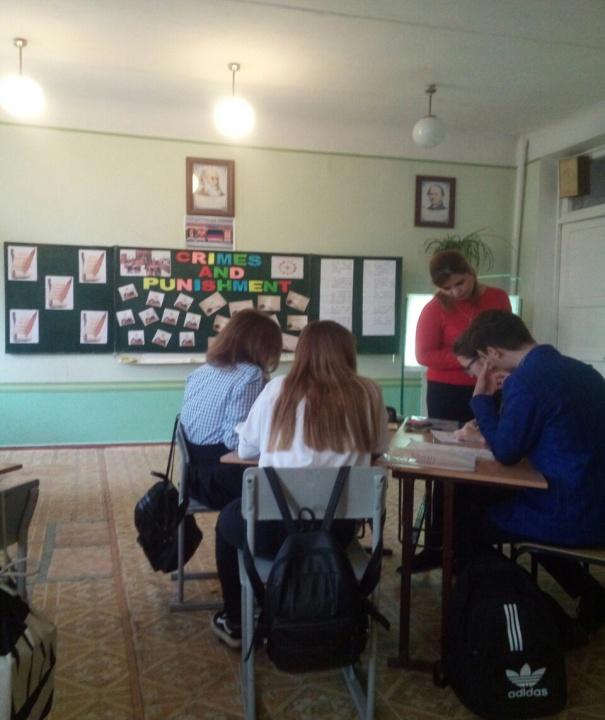
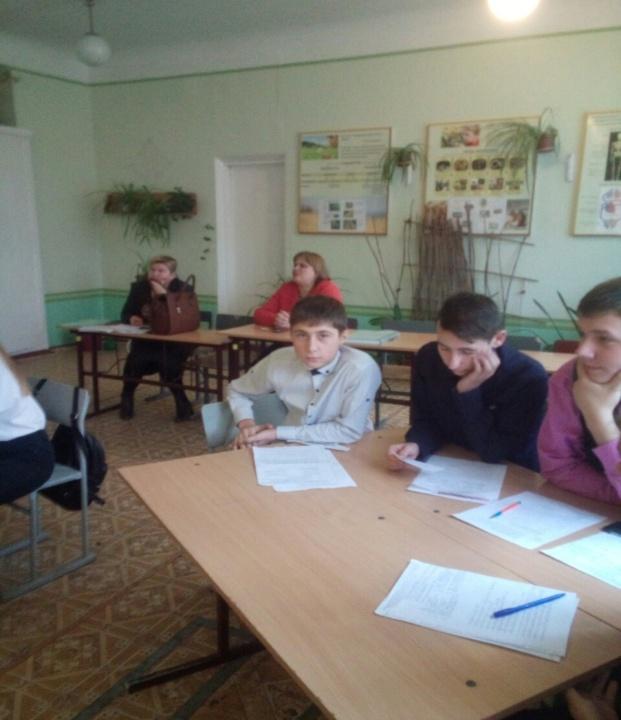
Первичное закрепление и отработка нового лексического материала. (Метод «Микрофон»)
А) Teacher: To see that you understand the meanings of these crimes I want you to read some sentences which describe different crimes and define them. You may discuss it with your partner. (слайды 8, 9)
-
Read the sentences and define the crime.
The boy would be harmed unless his parents paid the money.
She murdered him for his money.
Why do middle class women steal food from supermarkets?
Having made no profit that year, he set fire to his own factory.
People broke into our house and stole our video camera.
He threatened to tell the newspapers unless he got three thousand pounds.
The pilot was forced to take the plane to Tashkent.
Тренировка в речи ранее изученного и нового лексического материала.
Teacher: Are criminals usually lucky? (Ответы учащихся). If they are not lucky they are arrested and taken to court. Their life usually depends on the decision of a judge and jury.
Сначала учащиеся выполняют задание на карточках, затем они вытягивают карточку с одним из слов, читают предложение и показывают на картине или экране, кто есть кто. На уроке специально нарисована картина судебного заседания.
Now, take a card, read the word, find the definition. (работа с наглядным материалом)
Who is a judge, a prosecutor?...
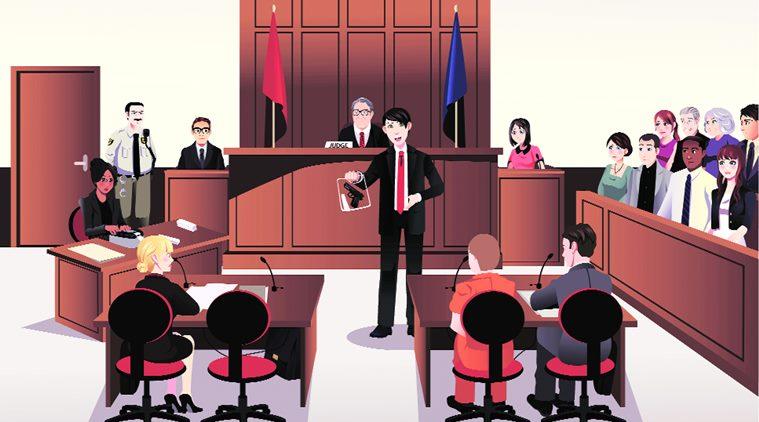
1. The accused
a) sb who has been charged with committing a crime
2.A court reporter
b) a professional who decides how a criminal should be punished
3. A witness
c) a professional who speaks for the accused and advises him or her in court.
4. A policeman
d) sb who has seen a crime happen
5. Jury
e) a professional who assists the lawyer of the accused
6. A judge
f) a group of people in court who decide if sb is innocent or guilty
7. A defense layer
g) sb. whose job is to arrest those who break the law.
8. A victim
h) a professional who represents the state in court.
9. A prosecutor
i) sb who notes down what is said in court
10. A junior defense layer
j) sb who is robbed, burgled or kidnapped etc.
1a, 2i, 3d, 4g, 5f, 6b, 7c, 8j, 9h, 10e
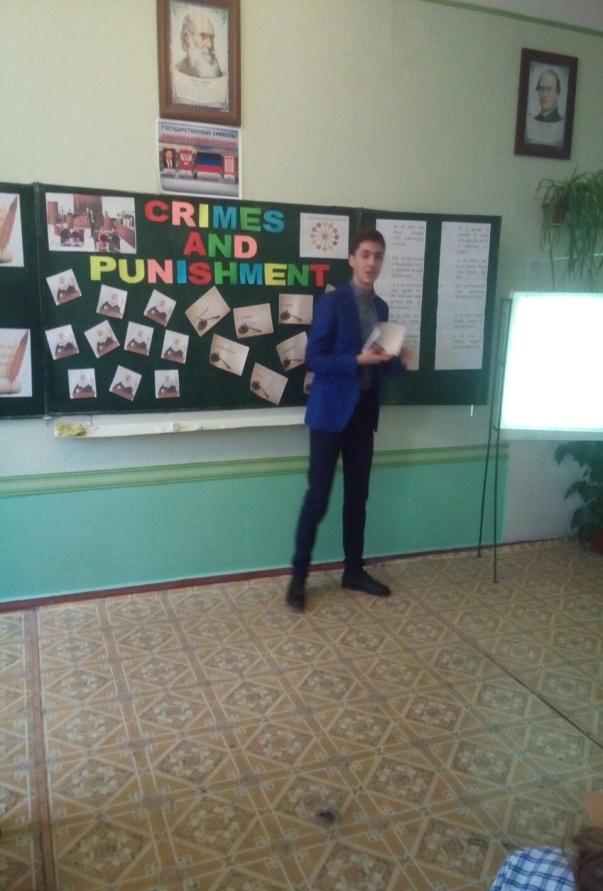
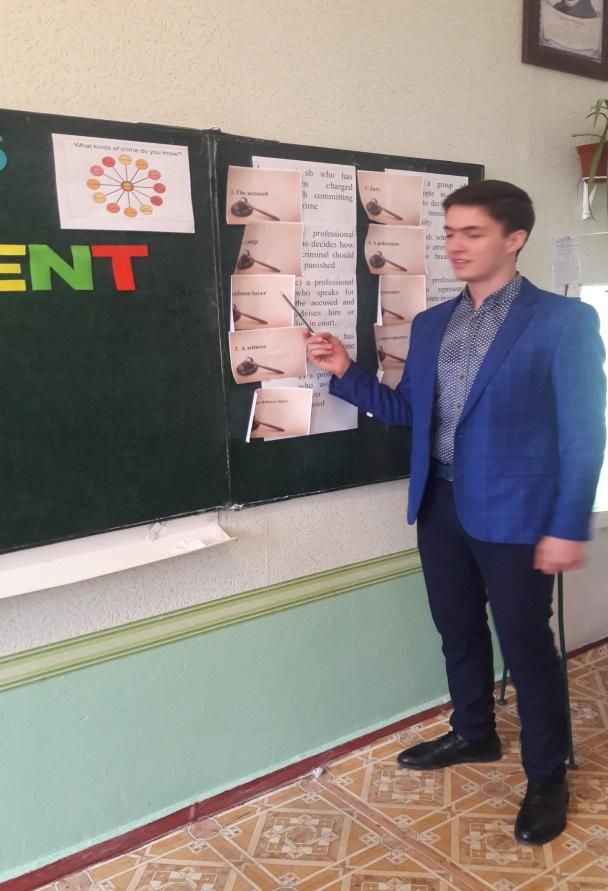
Закрепление изученного материала. Составление предложений по образцу. (ролевые игры)
Imagine that you are a judge. You had to make up sentences using this words and expressions.
Учащиеся составляют предложения по образцу.
I think murder is a serious offence. Someone who murders should be sentenced to ten years of prison. и т. д.
Murder to be sentenced to life imprisonment
Hijacking an aircraft to be sent to prison
Kidnapping to be fined a small/large amount of money
Littering to be given a suspended sentence
Writing graffiti to be given a warning
Stealing a car
Stealing sweets
Pick pocketing
Making noise late at night
Drinking alcohol in public places
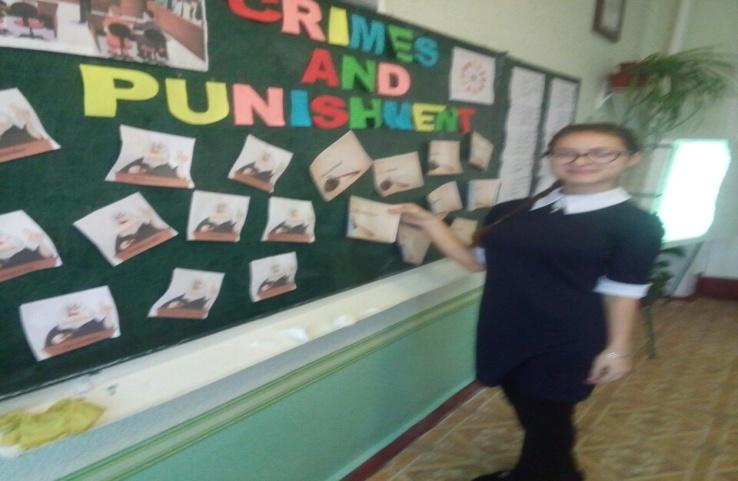
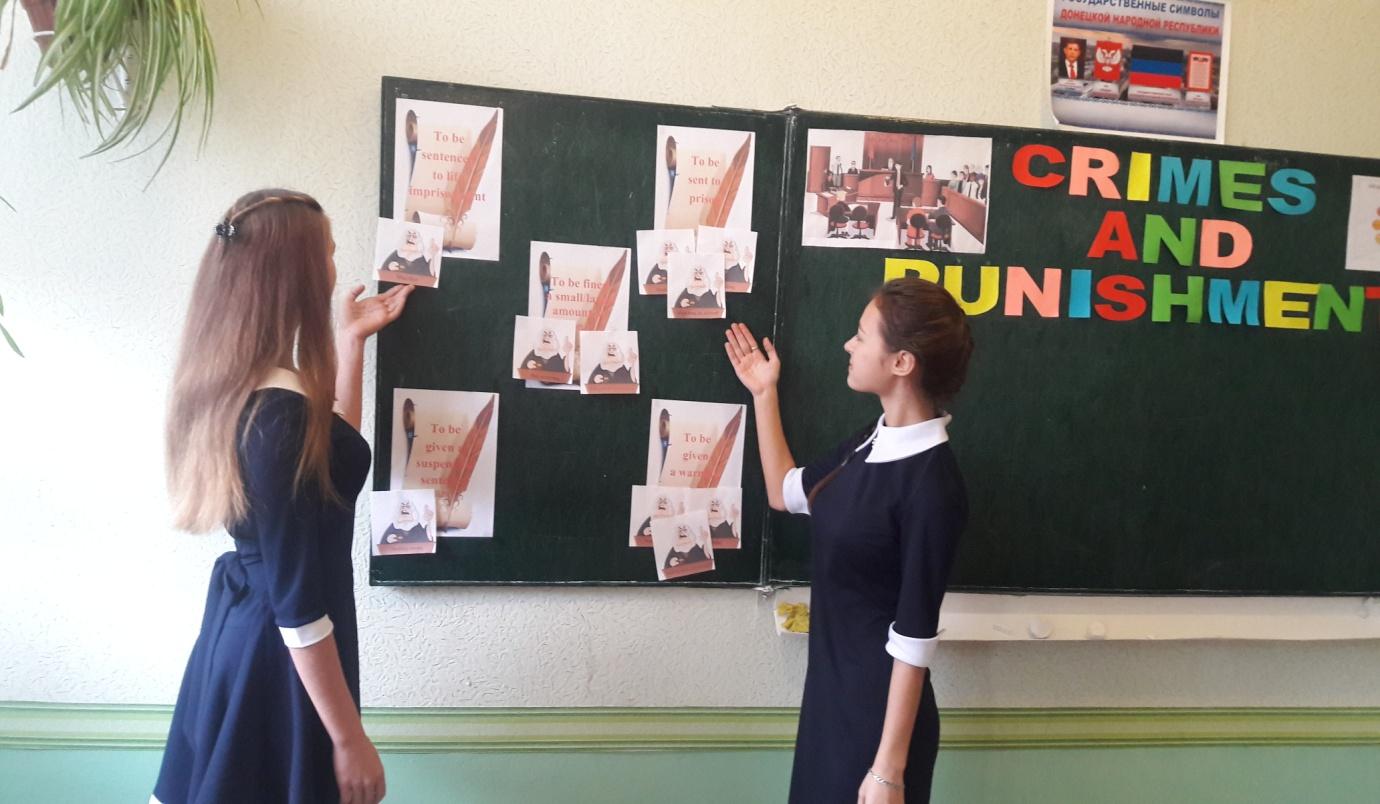
Рефлексия
11. And now complete my phrase. I know you like to do such exercises.
If you don’t commit a crime, you won’t get sent to prison.
If you don’t get sent to prison, you will…
Далее учащимся предлагается создать собственную цепочку предложений. Каждую новую фразу, начиная с конца предложения, используя условные предложения 1 типа. Учитель может сам остановить или закончить цепочку в нужный для него момент. Я на своем уроке закончила ее словами “ If you ….. you’ll be happy. I hope that you’ll be happy”.
1. Подведение итогов урока и объяснение домашнего задания:
a) So, my friends. The most active group was… You are the winners. Do you have any questions? Then it’s time to give you your home task. You must learn the new words and make up some sentences with them.
b) And now I will give you marks for your work at the lesson. Your marks are…
2. Прощание: Thank you for the lesson and good-bye!
8. Домашнее задание. Word formation.
Fill in the chart
Robbery
To rob
A robber
Murder
A murderer
Shoplifting
A shoplifter
Burglary
A burglar
Arson
An arsonist
Kidnapping
A kidnapper
Hijacking
A hijacker
Mugging
A mugger
Forgery
A forger
Make sentences with them using the phrases below:
is someone who takes things which do not belong to them.
is someone who sets fire to property on purpose.
is someone who takes a person by force and demands a ransom.
is someone who attacks people in the street in order to steal something.
is someone who breaks into people’s houses to steal things.
is someone who kills somebody on purpose
is someone who uses force to take control of a plane.
is someone who forges documents, paintings, etc.
is someone who steals something from shops.
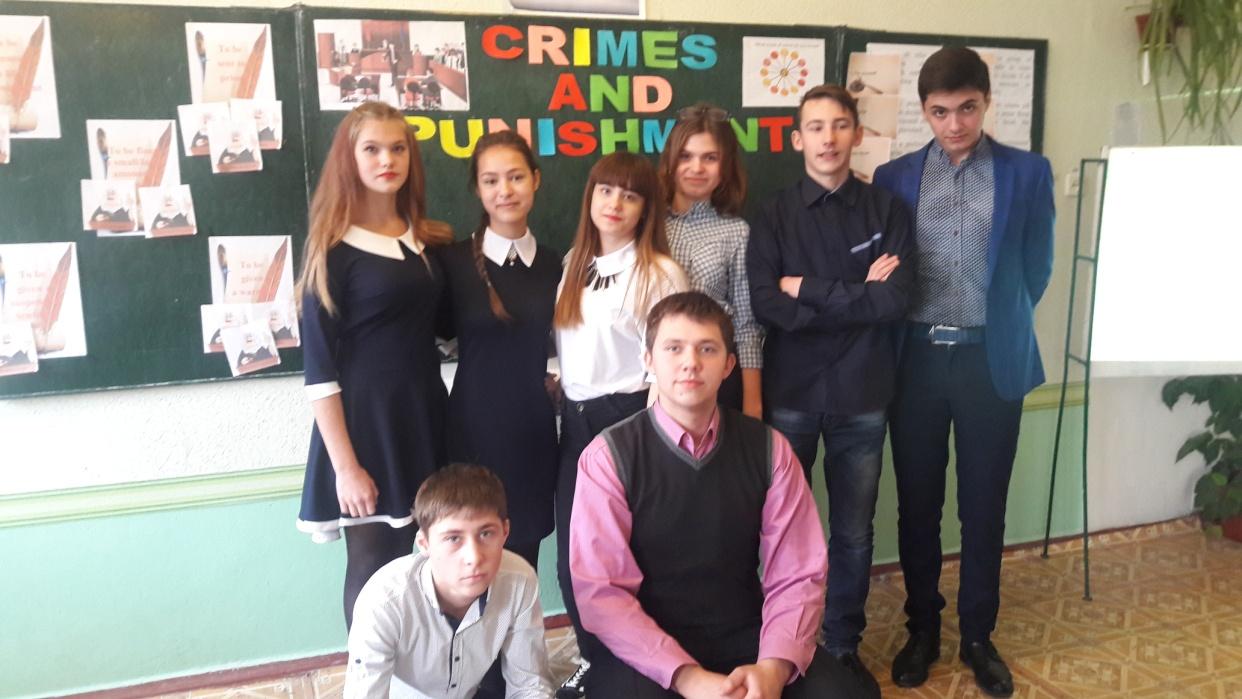
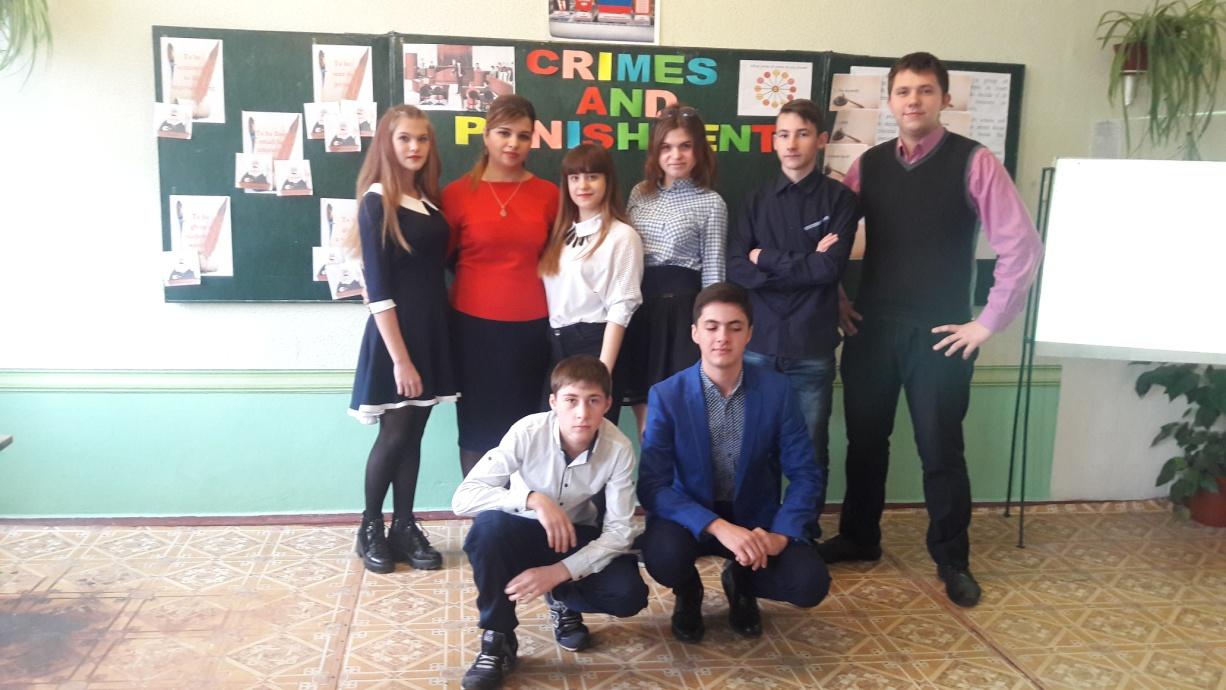
7
















